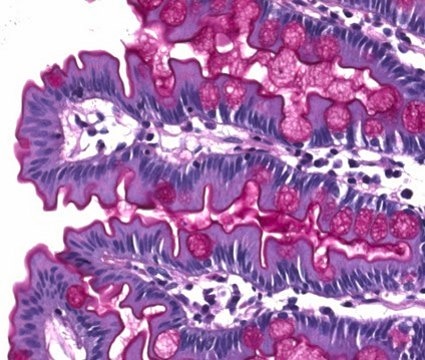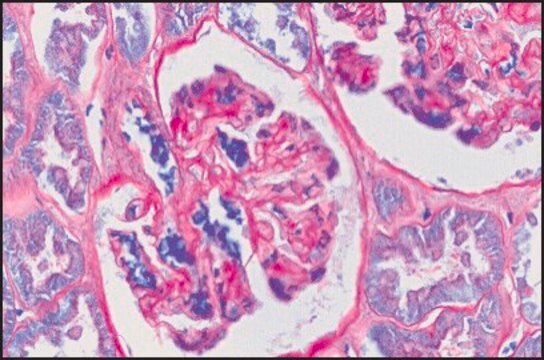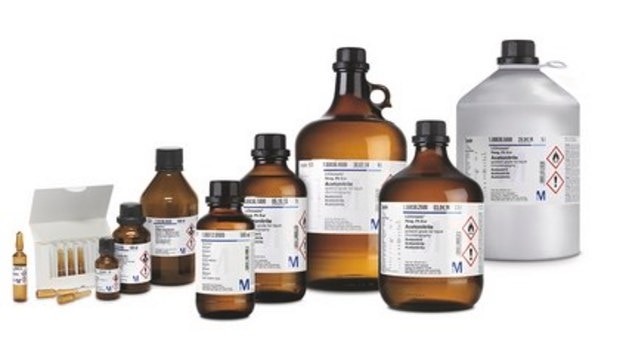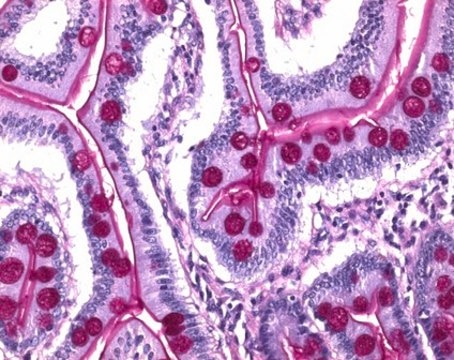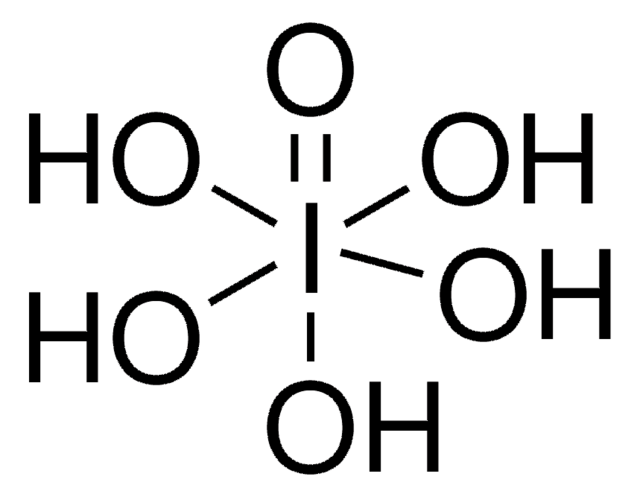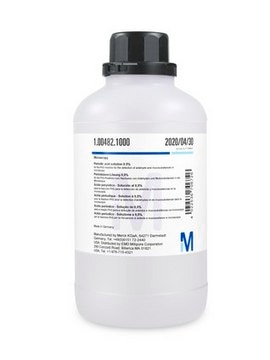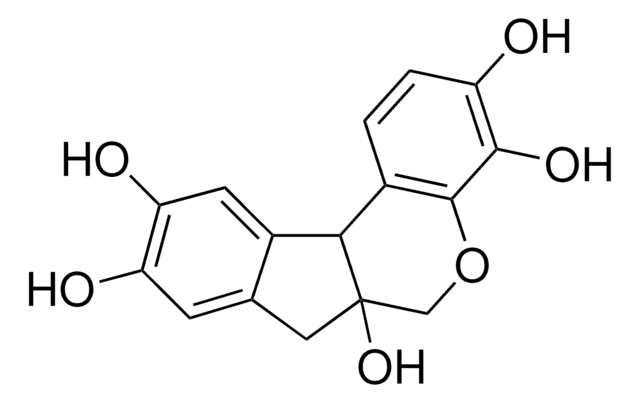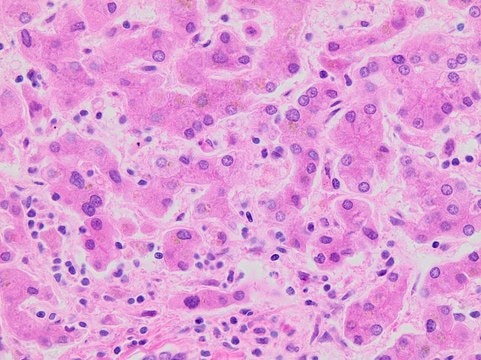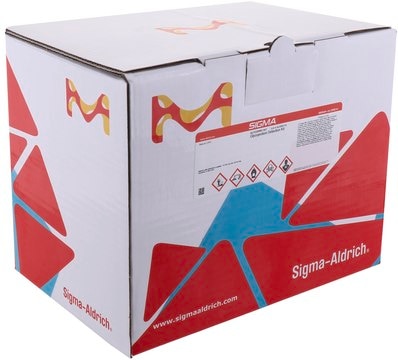Recommended Products
form
solution
Quality Level
shelf life
Expiry date on the label
IVD
for in vitro diagnostic use
pH
<2.0
application(s)
hematology
histology
shipped in
wet ice
storage temp.
2-8°C
Related Categories
Application
Intended for use in Sigma Periodic Acid Staining Procedure, 395. Kit is intended for use with blood, bone marrow, tissue touch preparations or routine tissue sections.
Components
Pararosaniline, 1% and sodium metabisulfate, 4%, in hydrochloric acid, 0.25 mol/L
Other Notes
Use Sigma reagent S5133 for staining glycoproteins in polyacrylamide gels.
signalword
Danger
hcodes
Hazard Classifications
Carc. 1B - Eye Dam. 1 - Met. Corr. 1
Storage Class
6.1D - Non-combustible, acute toxic Cat.3 / toxic hazardous materials or hazardous materials causing chronic effects
wgk_germany
WGK 3
flash_point_f
Not applicable
flash_point_c
Not applicable
Certificates of Analysis (COA)
Search for Certificates of Analysis (COA) by entering the products Lot/Batch Number. Lot and Batch Numbers can be found on a product’s label following the words ‘Lot’ or ‘Batch’.
Already Own This Product?
Find documentation for the products that you have recently purchased in the Document Library.
Customers Also Viewed
Naser Mobarra et al.
International journal of hematology-oncology and stem cell research, 8(4), 20-29 (2015-03-17)
The use of stem cells is considered as an appropriate source in cell therapy and tissue engineering. Differentiation of human induced Pluripotent Stem Cells (hiPSCs) to Hepatocyte-like Cells (HLCs) on mouse embryonic fibroblasts (MEFs) feeders is confronted with several problems
Yan-Yan Song et al.
Oncology letters, 8(1), 431-437 (2014-06-25)
Vasculogenic mimicry (VM) formation is important for invasion and metastasis of tumor cells in gastric adenocarcinoma (GAC). The present study aimed to investigate the association between signal transducer and activator of transcription-3 (STAT3), phosphor-STAT3 (p-STAT3), hypoxia-inducible factor-1α (HIF-1α) and VM
Rayan Awada et al.
International journal of molecular sciences, 20(19) (2019-09-25)
Somatic embryogenesis (SE) is one of the most promising processes for large-scale dissemination of elite varieties. However, for many plant species, optimizing SE protocols still relies on a trial-and-error approach. Using coffee as a model plant, we report here the
Sisse Andersen Nørgaard et al.
European journal of pharmacology, 860, 172537-172537 (2019-07-17)
The widely used db/db mouse as a model of diabetic nephropathy (DN) only mimics the early changes in human DN with a slow disease progression. Since high protein diet (HPD) has been reported to affect progression of nephropathy in both
Jin-Yong Chung et al.
Environmental health perspectives, 119(11), 1569-1574 (2011-07-09)
Benzo[a]pyrene (B[a]P), a polycyclic aromatic hydrocarbon (PAH), is a ubiquitous environmental pollutant that is currently suspected of being an endocrine disruptor. The testis is an important target for PAHs, yet insufficient attention has been paid to their effects on steroidogenesis
Our team of scientists has experience in all areas of research including Life Science, Material Science, Chemical Synthesis, Chromatography, Analytical and many others.
Contact Technical Service